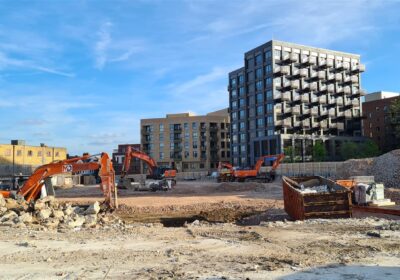As we head into another Party Conference season, the development sector remains in a significant state of distress with multifaceted challenges bedevilling delivery. This Government has a big to do list if we are to get housing starts back up to the numbers we need. One priority has to be to address is the continuing challenges in the Housing Association sector.
Over 1 million households are on housing waiting lists unable to afford to rent or buy a home but delivery has never been so challenged with viable schemes now routinely delayed as developers scramble to find Housing Association (HA) partners willing to take on a scheme’s affordable housing requirements. Research highlighting the problem is desperately worrying. Back in July Savills highlighted that over half the HA sector is out of the Section 106 market.
What’s driving the slow down when demand is at record highs? Existing stock requires significant attention.
Building safety and fire safety standards, decarbonisation targets and recent high-profile issues around damp and mould are all requiring significant levels of investment. HAs spent £6.9 billion on existing stock in 2023 and forecast a further £7.9 billion spend over 2024, reflecting the increasing priorities around damp and mould works according to the Regulator of Social Housing’s quarterly survey. This is leading to a substantial reduction in new build appetite.
Put simply, the system needs more money if we want to build more affordable housing. Section 106 delivery has been lent on to deliver almost half the affordable supply in the past but this is only sustainable if there are providers willing to take the homes. Wrong thinking such as constantly pushing policies that ask for unrealistic percentages of affordable housing when the subsidy isn’t there just means no homes are built, or far fewer than what this country needs.
Think flexible. If providers are not there then the scheme cannot start. We need to see a more pragmatic 106 regime where requirements which cannot be realised can be converted into cash payments or put into more intermediate tenures that at least allow schemes to get going. There is a lot of rhetoric about housing delivery, let’s see if the real issues can get addressed over the coming months.










